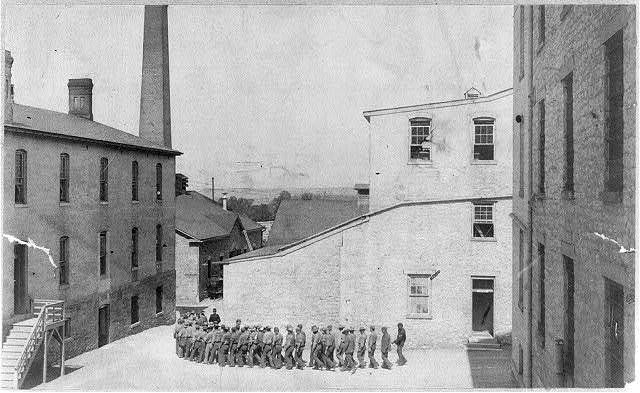
As I stated in the previous post, I am not a professional health care provider and I am not diagnosing the ex-pastor. To my knowledge she has never been under the care of a mental health care provider who has professionally diagnosed her as a personality disorder.
My main objective in research, compiling and then writing my thoughts and conclusions is to convince myself by understanding of narcissism and by authority of Scripture that the judgments she passed on me (supposedly inspired by the Holy Spirit) and her interpretations of God’s Word are the products of a distressed mind and are no more validated than a hearing-impaired individual’s assumption that the world is silent.
Plainly stated: She is impaired in judgment and due to the nature of her disease, incapable of projecting sound judgment of God and His Word.
sense of entitlement and hyper-reactivity to criticism
Many of her sermons were comprised of twisted Scriptures designed to reinforce her perverted authority.
She often quoted the scripture in Psalms of “Touch not my anointed” when a parishioner disagreed or questioned her authority. (Read a former post by Provender on Scripture twisting)
There was, however, no ceiling to her authority.
A visiting minister once preached an eloquent message on what the fruit says about the tree, quoting Jesus’ parable of the fig tree.
She was livid and dedicated the next week of services on refuting his words and then announced that he had called her back in tears and repented for questioning her (I believe this was a lie).
She publicly and frequently challenged Rick Warren’s book “The Purpose Driven Life” saying it misdirected readers into a life full of self.
After leaving the cult, I read the book and realized why it posed such a threat to her: it directs people to seek God, not her, for the direction and purpose of their life.
She warned that the Promise Keepers was a dangerous movement and would evolve into a pseudo-Nazi organization.
And the list goes on: If a prominent minister dared direct people to seek God for themselves -she would say that phrase with great derision, adding that God shared His word through His mouthpiece-her.
Imagine thinking that in the millions of churches and Christian fellowships on this planet, God only chose to spoke through you.
If that isn’t delusions of grandeur, I don’t know what is.
She was also a rabid racist. According to her, mixed marriages were prohibited by God, most African-American males would turn into rapists given half a chance, and Muslims, well, I don’t have time and space to write of her hatred of that ethnic group.
She gloated when Katrina ravaged
She felt enough of a sense of entitlement to prohibit a couple from marrying for over sixteen years.
In another instance, she took money donated by a parent for the betterment of school to buy a new stove for her house.
People had to choose their house furnishing and color schemes according to her preferences. If they ‘rebelled’ she would belittle them in private when she talked with her ‘family members’.
She had phone wires tapped, stole from the elderly, and told people what career or job God wanted them to have.
In essence, she believed the Scripture of “not touching” referred solely to the fact that no one was allowed to touch her. God had meant that in the centuries of church history only she could not be ‘touched’.
So, yes, I do believe her sense of entitlement was well-founded. She was, however, in direct defiance of the Scripture that instructs leaders to be humble.
She had an incredibly manipulative and exploitative nature. She would play the wounded warrior often, saying God had reveled certain parishioner’s hatred of her, and that those who were loyal to her had urged her to save her health by moving where she would be treated right. After returning from a visit to another church she pronounced that she felt God’s leading to a place where people had “ears to hear God’s Word”. Unfortunately for those of us stuck under her dictatorship, she never mad good on that “leading”.
Displaying her sense of entitlement, she declared that God had revealed to her that He had allowed an ex-parishioner into heaven because, as the parishioner was dying, she had apologized for defying the pastor.
She encouraged people that had aging or ailing parents that there place was in church, with her, not caring for or seeing to the needs of their parents. She stated that “the world will care for their own”.
As mentioned in an earlier account, parishioners earned her income by cleaning five to seven buildings bi-weekly.
This was all done on a voluntary basis- the parishioners used their own cars and paid gas for a sixty mile round trip.
I did some rough figuring for a ball park sum of wages she should have paid these “volunteers”.
I came up with:
Paying minimum wage x 14 hours a week = $91.70 a person
An average of 10 people cleaned every week = $917
The buildings had to be cleaned every week- no holidays- so:
917 x 52= $47, 684 for a year’s worth of salaries
Most people had cleaned for twenty years so:
20 x 52= 1,040 weeks x 10 people= 10,400 x $47,684=
$495,913,600-salaries she should have paid to her volunteers over a period of twenty years.
If I saw her today, I would quote what Bishop Desmond Tutu said:
I am not interested in picking up crumbs of compassion thrown from the table of someone who considers himself my master. I want the full menu of rights.
There were times that she seemed to be a decent human being. She promoted sending cards to acquaintances and parishioners who were sick or going through difficult circumstances. The issue was that if you sent the cards without her knowledge.
I am not interested in her twisted sense of God. What she did to a churchful of people was use God as an impersonal force to fulfill her own perverted need for control.
I have hope that, recognizing the harm she inflicted on generations of parishioners, she could have an ‘
Eugene Peterson, in his preface for Galatians (Message, Re-Mix) states:
Through Jesus, Paul learned that God was not an impersonal force to be used to make people behave in certain prescribed ways, but a personal Savior who set us free to live a free life





